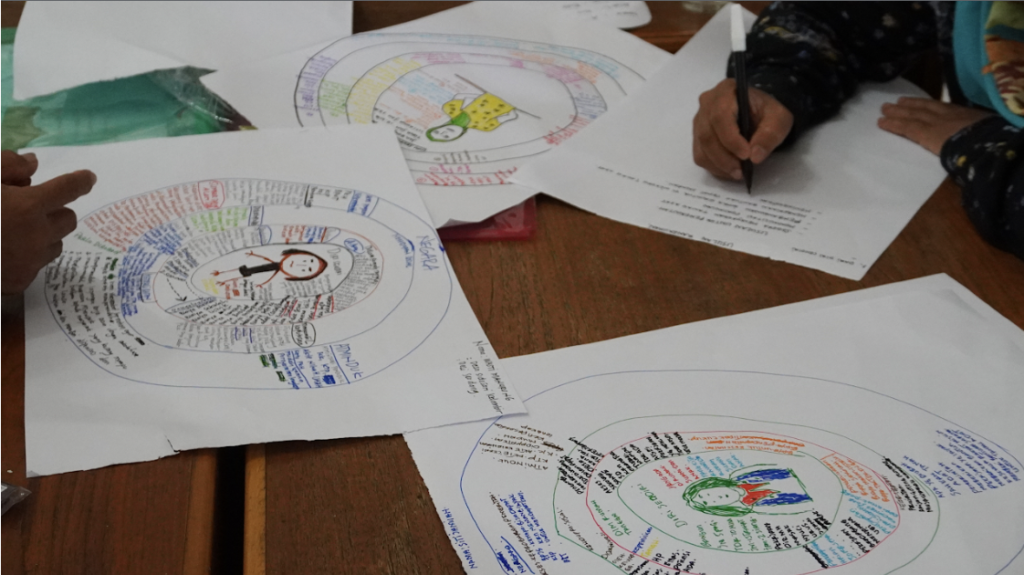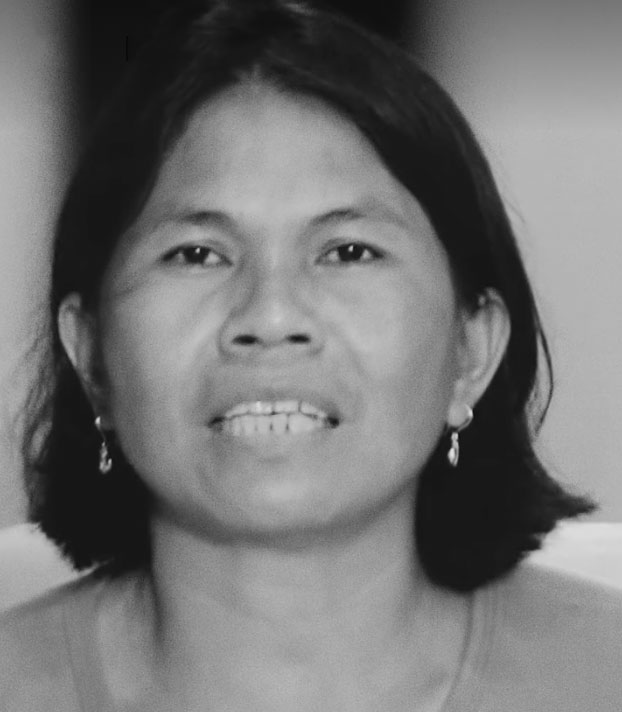Farmer women and Batak women are the victims who suffer the most in tenure conflicts in North Sumatra due to plantation projects. However, the women continued to struggle to defend their ancestral lands.
Full movie available soon.
This report compiles an overview of findings from consultations carried out by Aksi! with women in 10 cities across Indonesia between November 2021 and January 2022. The report sheds light on the issues of gender and economic inequality faced by women at the forefront of these issues as expressed and analysed by the women themselves. It is hoped that by reading this report, stakeholders can see the situation of women from their own perspective, understand their challenges and their aspirations for change, and then develop joint efforts to help them, their families and communities deal with the situations of inequality and injustice they face.
The report is only available in Bahasa Indonesia.
Or view the online flipbook version here.
For the Dayak people, the forest is a symbol of women’s dignity. However, the indigenous people on the island of Borneo have to face land grabbing which has an impact on their lives.
This documentary by Aksi! for gender, social and ecological justice and New Age Cinema is the result of collaboration with the Mamut Menteng Women’s Solidarity. The full movie will be available soon.

Outside the W20 Summit, on July 20, indigenous Toba women and a number of activists unfurled a giant banner that read “Women of North Sumatra Against Deforestation” on Lake Toba and a number of action posters on the boat. The action was a protest against the discussions at the W20 meeting that did not address the problem of economic injustice experienced by Indonesian women, especially indigenous women. This meeting was actually held only to produce policies that would benefit the country’s economic and political elites, corporations and international financial institutions, and not to discuss the real interests of the people.
Among other media coverage, Narasi, an online media outlet responded with a comprehensive video of the story and interviewed Aksi! and its partner KSPPM.
This report by Aksi! provides an analysis of the social reality of economic inequalities faced by women in Indonesai and the impact of policies and programmes intended to tackle this.
The report is only available in Bahasa Indonesia.
Or view the ‘Online Flipbook’ version here.
In honour of Kartini Day (which commemorates the life of an Indonesian champion for women’s equality), this press release brought attention to the ongoing and imbalanced impact of Bali’s economic crisis on women.
This report by Solidaritas Perempuan records numerous cases of women’s experiences of gender and economic inequality in Indonesia. From the experiences of migrant workers to women in the midst of agrarian conflicts fighting for food sovereignty, these cases from women from Aceh, Palu, Poso, Palembang, Sumbawa and Jabotabek, demonstrate the gendered nature of economic inequality across Indonesia.
The report is only available in Bahasa Indonesia.
From school books we know that forced cultivation systems were introduced by the Dutch colonial government through Governor General van den Bosch. Today, almost 200 years after that dark period, we seem to be able to witness it again on the land of Kalimantan through the Food Estate which is a National Strategic Project during the era of President Jokowi’s government.
As KPA Secretary General Dewi Sartika said, “if analyzed, the Food Estate system is actually similar to the forced cultivation system, so it can be concluded that Indonesia’s economic policies have returned to the era of colonialism.”





